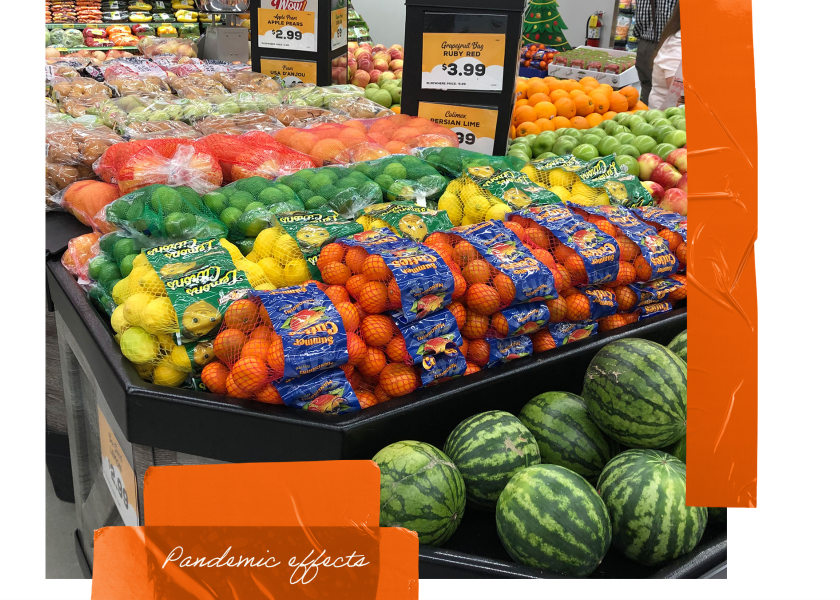Citrus shines during pandemic

The COVID-19 pandemic has challenged produce grower-shippers throughout the U.S., but a silver lining for the citrus industry is consumers’ perception of commodities like oranges, mandarins, lemons and grapefruit as immunity boosters.
“Citrus as a category is definitely up this year versus last year,” said Al Finch, president of Florida Classic Growers Inc., Dundee.
“As we navigate through the pandemic, people want to continue to eat healthier,” he said.
“I feel people think of fresh citrus as that instant shot in the arm of vitamin C when they’re shopping in the produce department.”
The vitamin C content of citrus has played a significant role in increasing consumer demand for the category, agreed Christina Ward, director of global brand marketing for Sunkist Growers Inc., Valencia, Calif.
Citrus is considered a superfood by the American Diabetes Association because it is rich in vitamin C and provides nutrients like folate and fiber, she said.
Industrywide, lemon sales have risen nearly 30% during the pandemic, said Alex Teague, senior vice president at Limoneira Co., Santa Paula, Calif.
“We are more than double that,” he said.
Although sales have slowed recently, he is hopeful that they will pick up again soon.
“We remain very encouraged with our Take a Healthy Stand (educational campaign), and we look forward to working with not only our retail partners but other producers as well in promoting a healthy lifestyle with fresh produce,” Teague said.
COVID-19 helped boost sales of California citrus last year, but demand has not been as heavy so far this season, said Casey Creamer, president of Exeter-based California Citrus Mutual.
“The market has been steady, but it hasn’t been the big improvement over what it was before the pandemic,” he said in late December.
But he pointed out that it was early in the season, many people in California were out of work, and business with the foodservice sector has been down.
“We’re hoping things pick up, back to where we were at the height of the pandemic,” he said. “So far, it hasn’t quite reached that level.”
In Texas, the numbers for the Mission-based Texas Valley Citrus Committee don’t seem to be reflecting an uptick because of the coronavirus either, said manager Ted Prukop.
As of early January, growers there were running the same packout as last year.
“If people were eating more citrus, you’d think we’d be shipping a little better,” he said.
Like many shippers, Cecelia Packing Corp., Orange Cove, Calif., is experiencing heavier demand for bagged citrus, said salesman Jim Saavedra.
Consumers like the convenience of bagged product, and they appreciate that there is less handling of fruit by other shoppers, he said.
“You just pick up a bag.”
Most suppliers seem to be weathering the pandemic fairly well in the workplace.
Seald Sweet International, Vero Beach, Fla., takes workers’ temperatures every day and has instituted a policy whereby employees are encouraged to stay hope if they feel ill, said GT Parris, commodity manager.
The company works with employees to make up lost hours, and those who can work from home are encouraged to do so.
Not many people have failed to show up for work, he said.
“We’ve been very fortunate.”
Florida Classic Growers is taking all the safety precautions possible, including temperature checks, requiring masks, social distancing and following all the proper protocols to conduct business during COVID-19, Finch said.
“We have been blessed as a company to be able to continue to operate our packinghouses during the pandemic,” he said.
As has been the case throughout the industry, foodservice sales are down significantly as restaurants close, reduce their hours or cut back capacity.
Although retail business at Limoneira increased by 100%, nearly two-thirds of fresh lemons go to foodservice channels, Teague said.
“That cannot be made up.”
Cecelia Packing saw a dip in foodservice business last year, Saavedra said.
“We were wondering what to do with the small fruit,” he said, since the smaller sizes usually go to restaurants.
Then the U.S. Department of Agriculture’s Farmers to Families Food Box Program was implemented and “helped cleaned up a lot of small fruit throughout the industry,” he said.
That seems to have been a big help.
“Everything is moving pretty decent,” he said in early January.







